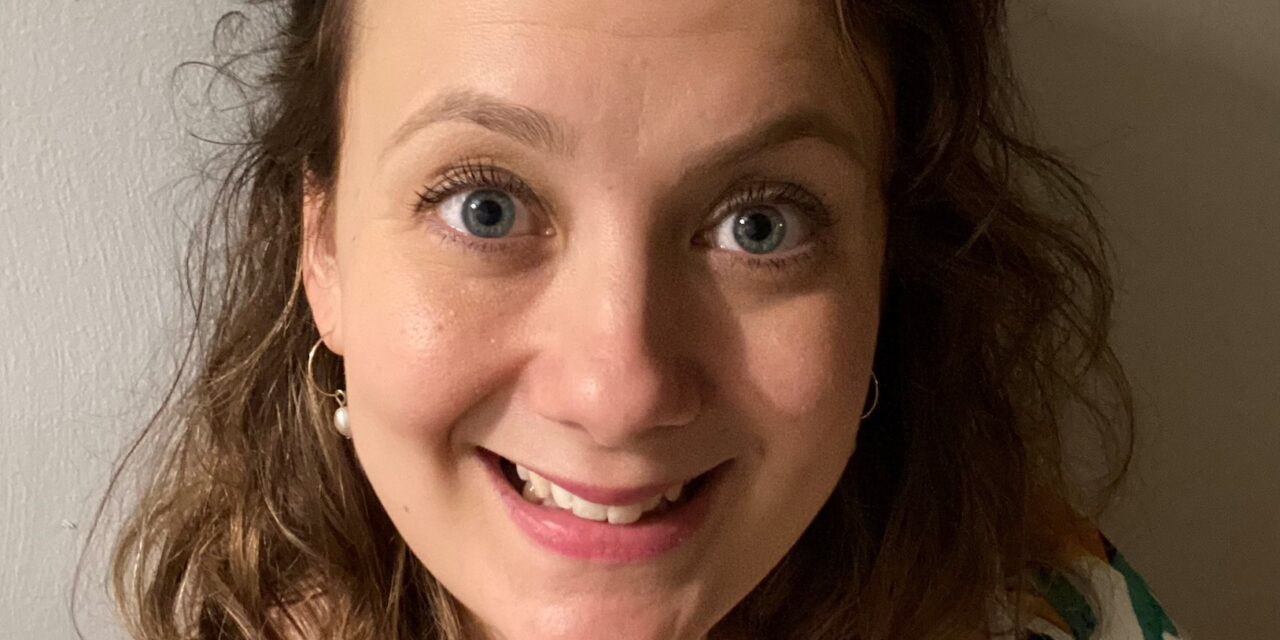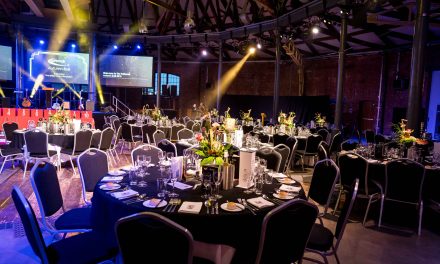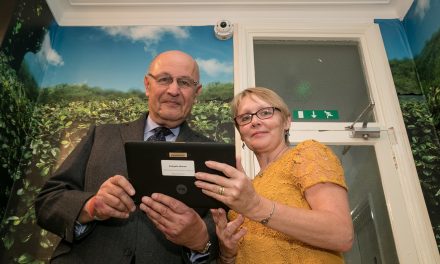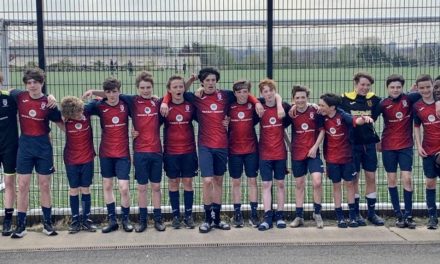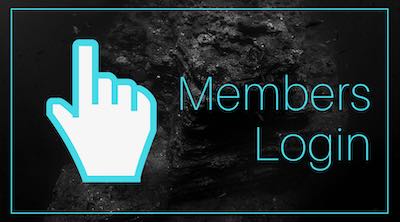When you think of Guide Dogs, you wouldn’t be alone in picturing the highly trained dogs in white harnesses, and thinking of the amazing work they do. Beyond this, however, there are a whole host of unsung heroes performing lesser-known jobs at the charity and having a monumental impact on the lives of children and young people with a vision impairment, and their families, across the country.
Rebecca Morley, from Nottingham is one of these staff members working as part of the Children, Young People and Family Service in Guide Dogs for four years. Starting as a Trainee Habilitation Specialist, she underwent a two-year training programme, before becoming a qualified Habilitation Specialist in 2022.
Rebecca explained: “We learn a huge amount about the world through our vision with little effort and often without even realising it. We know that a ball rolls on the ground if pushed or travels through the air if thrown, just by watching it! A child who is born with a vision impairment has to develop an understanding of the world and how it works without the same level of easily accessible information.
“As Habilitation Specialists it is our job to support children from 0-25, and their parents, to develop skills using any residual vision they may have and introducing alternative ways to learn, develop their understanding of, and access the world around them. We are passionate about enabling every child and young person with a vision impairment to reach their goals and independently achieve their full potential.
“One example we use to help people understand our role is thinking about how children learn to crawl. Often parents may use an eye-catching object like a bright colourful toy to attract the child’s attention and then pull this away from their reach, to encourage them to move towards it.
“For us, it is thinking about how key life events, such as crawling for the first time, might be delayed for a child with a sight impairment, and how we can support the child and the parent along this journey so that they reach these goals along with their typically sighted peers.”
Moving through childhood, change and learning something completely new, can be a particularly challenging time for a visually impaired person. Rebecca explained that for children, this can be moving up through their school years from nursery to primary school through to university.
Rebecca explains: “We often work with children moving from a small primary school close to home, to a large secondary that may be a bus journey away. It’s our role to support them to develop their mobility, so they can travel safely and independently from home to school, ensuring they know the school layout so they can move around confidently on their own accessing all the school’s facilities – ensuring that these young people start their next step through education positively and confidently on a level playing field with their typically sighted peers.”
Learning good social skills is important for any child’s development. The Habilitation Specialist role not only focuses on advancing these for young people with vision impairments, supporting them to develop their self-advocacy skills, but also educating others around them to minimise isolation.
“One child I was working with had just started secondary school and said she was sitting alone at lunchtime or skipping lunch altogether. We were all concerned, and so discussed this further with her.
“It turned out that she’d made friends in class, who she planned to meet at lunch, but hadn’t decided on where and when, and of course, she wasn’t able to look for them.
“Together, we devised a plan and developed her social skills, so that she felt confident letting them know a time and place where she would be, and from then on, they came and met her at lunchtime. It’s little things that can make a massive difference to children and young people with vision impairments, especially as they’re faced with talking about something very emotional and practically challenging every day.”
As a child continues their journey into adulthood such as beginning university this brings with it a whole host of other life skills to learn and develop. For example, sorting wash loads or learning to catch the train, there are hundreds of added layers of learning and preparation a young person with a vision impairment goes through to enable them to live independently. A Habilitation Specialist’s role is about ensuring children have the mobility and independent living skills to develop into independent, confident adults and to have the same opportunities as their peers to achieve their goals and ambitions.
For a Habilitation Specialist at Guide Dogs, every day is different. Whether it is delivering one to one training with a child, running group sessions, working in collaboration with local authorities, or attending meetings to explain what additional support a child with a vision impairment may require. There are a whole host of services out there that children, young people and their families can access if they know about them, and another important part of the role is signposting to these whether they be within Guide Dogs such as Family Support or externally to other charities or local authorities that can assist with a range of different needs.
A work highlight, to Rebecca, comes in the form of witnessing a child’s success: “Some might look minor, but for that person, it is a massive step towards their independence. Whether it is completing their first solo bus journey or typing a note in braille, they’re my moments of joy,” Rebecca said.
To learn more about the support that Guide Dogs provides for Children and Young People with a visual impairment, visit: Support for Children with Visual Impairment | Guide Dogs UK



